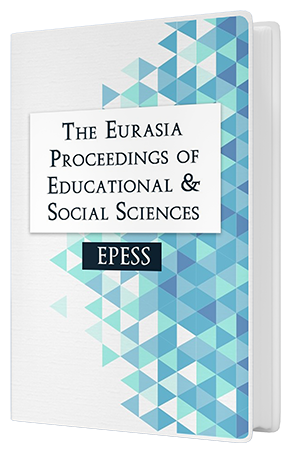A LEARNING STYLE INFERENCY SYSTEM BASED ON FUZZY LOGIC TECHNIQUE AND HONEY&MUMFORD’S LEARNING MODEL
Keywords:
Kolb’s learning style, Honey & Mumford learning style, fuzzy logicAbstract
In this study, fuzzy logic based Honey and Mumford’s learning system is proposed to characterize learning styles of the students who have various own learning skills, intelligence levels and learning styles. We used Honey and Mumford’s model which is based on Kolb's learning style and which identifies four distinct learning styles namely; Activist, Theorist, Pragmatist and Reflector in accordance with the Kolb’model. In Kolb’s learning system, effective learning process can be achieved by incorporating four models namely; Concrete Experience, Abstract Conceptualization, Reflective Observation and Active Experimentation. We designed a software system which includes some of the questions in Learning Style Questionnaire which is prepared by Honey & Mumford. We rated the answers of the students and give them as an input to the proposed fuzzy logic engine which has four input models namely Activist, Theorist, Pragmatist and Reflector; and an output namely EducationStyle. The proposed system inferences Education Style, Learning Status and Level of Learning Style of the student. By this way, instructor will be able to match his teaching style with student's learning style.Downloads
Published
Issue
Section
License
Copyright (c) 2015 The Eurasia Proceedings of Educational and Social Sciences

This work is licensed under a Creative Commons Attribution-NonCommercial-ShareAlike 4.0 International License.
The articles may be used for research, teaching, and private study purposes. Any substantial or systematic reproduction, redistribution, reselling, loan, sub-licensing, systematic supply, or distribution in any form to anyone is expressly forbidden. Authors alone are responsible for the contents of their articles. The journal owns the copyright of the articles. The publisher shall not be liable for any loss, actions, claims, proceedings, demand, or costs or damages whatsoever or howsoever caused arising directly or indirectly in connection with or arising out of the use of the research material. All authors are requested to disclose any actual or potential conflict of interest including any financial, personal or other relationships with other people or organizations regarding the submitted work.




